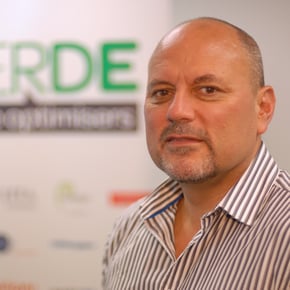As an organisation moving decisively towards customer intimacy and with the introduction of our Project Management Office, we’ve taken a further step towards ensuring projects are successfully delivered by adding a Statement of Work upfront to guide all aspects of some jobs.
The Statement of Work (SOW) model has a simple purpose, even when applied to notoriously complex enterprise software projects: it is a plan which seeks to upend that old classic ‘if you fail to plan, you plan to fail’ (apparently, Benjamin Franklin first said that. In his famously pithy way, Winston Churchill rephrased it and said ‘Those who fail to learn from the past are doomed to repeat it’.)
So, what is the SOW? You can read the Wikipedia definition; for Verde, it is at the heart of project planning and the reference point against which an implementation can be measured. It provides an upfront indication of costs and outcomes, seeks to anticipate the inevitable issues which will be faced, and quantifies the time, materials and human resources required for successful delivery.
It provides an important level of detail to a variable priced contract, or a solid basis for a fixed price contract.
Sounds ideal, doesn’t it; it’s not just accountants who like certainty, those of us who work in IT are quite fond of predictable outcomes, too.
However, a real challenge facing the SOW, particularly on the large, complex projects which are typical in the implementation of enterprise software, is the fundamental difficulty in identifying and quantifying every possible challenge and problem. Those who have participated in enterprise software projects will know exactly what we’re talking about here: only in the actual implementation phase do certain issues arise, despite, as Robert Burns noted, ‘the best laid schemes of mice and men’ (warning: this link will test your comprehension of 18th century Scottish verse).
The SOW It is about creating and managing expectations – expectations which are rooted in the real world. That’s why we aren’t taking a blanket approach to introducing SOW – to do so would be naïve and potentially damaging. This goes to the very heart of our customer intimate model, too; a level of maturity and realism must apply to every project, and where it isn’t possible to anticipate every detail, that must be acknowledged up front (and, perhaps, the possibility of an agile methodology considered. Although, it should be noted, there is some controversy around ‘agile’, which can be an excuse for a ‘seat of the pants’ approach to project delivery).
Instead, we’re applying the SOW selectively, with a particular focus on those projects where certainty of costs, outcomes and timelines are valued; the SOW is defined to provide both you and us with clarity on project-specific activities, deliverables, timelines and costs. Regardless of the size of the project or nature of the services contract, where applicable, this approach provides assurance for you on project delivery.
But even those projects which have a SOW and been scoped to a fine level of detail are not exempt from variances. In such instances, the SOW provides a solid basis from which to adapt project plans if additional requirements are discovered along the way.
In practical terms, the SOW is produced by Project Managers from our Project Management Office who review each SOW prior to them being sent to customers for approval, and oversee and manage all SOW projects to ensure they are delivered on time and on budget.
In the next blog, we’ll look at the most important resource in getting the goods delivered: the people. We take great pride in our people, because it is thanks to them that we have a track record of delivery as long as your arm.

